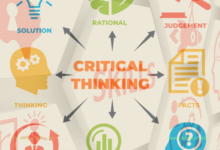
Analytical Approach Of Decision-Making Helps Leaders Make Informed And Rational Decisions
Leaders are often asked to make decisions that significantly impact a team’s success or failure. In addition, there are many different decision-making approaches, including the analytical approach, which has gained tremendous popularity in recent years. Furthermore, this approach is based on the belief that objective data are used to make decisions. They are more likely to be accurate and practical than decisions based on intuition or personal experience alone. Therefore, the analytical decision-making approach involves using problem-solving, data analysis, and critical thinking skills to make informed and rational decisions. Leaders with this approach have high resilience and the ability to adapt to any environment and control most aspects of the decision-making process.
Advantages of the analytical approach in decision-making
1. Make data-informed decisions
By using this approach, leaders are more confident that they have all the data they need analyzed to make informed decisions rather than relying on intuition or personal biases.
2. Identify potential risks
Leaders can identify and mitigate potential risks through this approach of analyzing data and evaluating alternatives before deciding. This helps reduce the possibility of making costly mistakes.
3. Support strategic planning
This approach allows leaders to analyze data, evaluate alternatives, and analyze strengths, weaknesses, opportunities, and threats. Therefore, they can make decisions that align with the organization’s goals and strategies.
4. Promoting innovation
An analytical decision-making approach can foster innovation by encouraging leaders to consider multiple alternatives, think creatively about solving problems, and seize opportunities.
5. More objective decisions
This approach helps leaders make more accurate and objective decisions based on precise data rather than personal opinions.
6. Facilitating continuous learning and development
The analytical approach of decision-making supports improvement and facilitates continuous learning and development processes by encouraging leaders to track and analyze the effectiveness of their decisions.
7. Strengthening organizational communication
This approach can enhance organizational communication by building a clear and objective administrative hierarchy. This can help leaders communicate their decisions more effectively to stakeholders.
8. Use resources effectively
By analyzing data and evaluating alternatives, leaders can determine the most effective use of resources. This helps allocate resources and ensure they are used as effectively and efficiently as possible.
9. Improve problem-solving skills
The analytical decision-making approach can help leaders improve their critical and analytical thinking skills to solve more manageable problems. This can help determine the cause of the problem and develop practical solutions.
Disadvantages of the analytical approach in decision-making
1. Limited access to available data
Analytical decision-making is based on data and analysis, so complete and accurate data must be available. Note that there is often limited access to available data.
2. Long time consumption
The decision-making process in this approach can be time-consuming because it involves collecting and analyzing data to make decisions. Sometimes, this may not be possible or practical, especially when quick decisions are required.
3. Focus and rely only on data and nothing else
This approach can lead to focusing and relying only on data in decision-making. This may lead to not considering other factors that may be relevant to the decision.
4. Not ideal for solving complex problems
This approach to decision-making may be better for complicated or new problems. Data may be difficult to access. In these cases, a more creative and intuitive approach may be necessary.
5. Incompatibility with the organization’s values and culture
Sometimes, the analytical approach of decision-making may not be compatible with the values and culture of the organization. Note that some organizations may prioritize intuition or make decisions based on consensus.
As a leader, it is essential to consider the pros and cons of the analytical decision-making approach and determine if this is the right approach for your specific needs.



